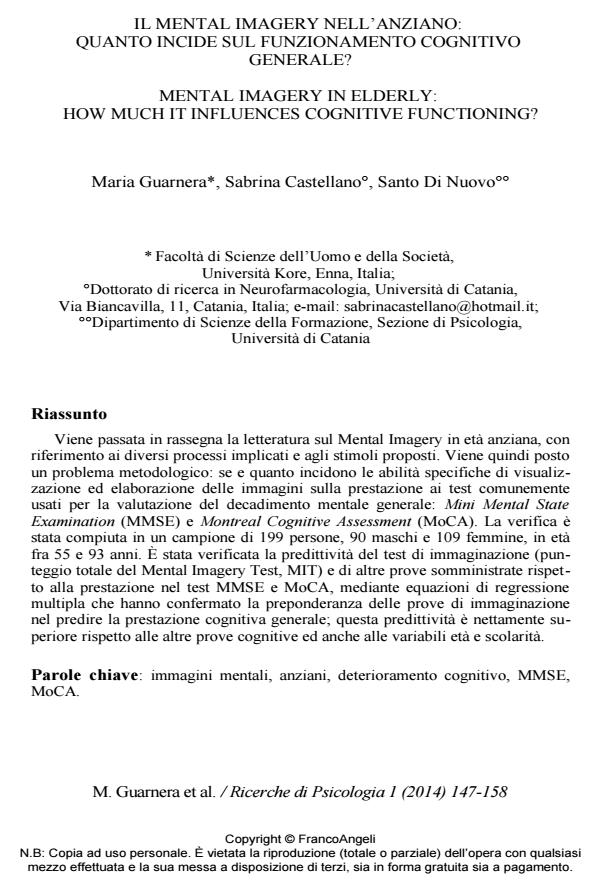Mental imagery in elderly: how much it influences cognitive functioning?
Journal title RICERCHE DI PSICOLOGIA
Author/s Maria Guarnera, Sabrina Castellano, Santo Di Nuovo
Publishing Year 2014 Issue 2014/1
Language Italian Pages 12 P. 147-158 File size 181 KB
DOI 10.3280/RIP2014-001008
DOI is like a bar code for intellectual property: to have more infomation
click here
Below, you can see the article first page
If you want to buy this article in PDF format, you can do it, following the instructions to buy download credits

FrancoAngeli is member of Publishers International Linking Association, Inc (PILA), a not-for-profit association which run the CrossRef service enabling links to and from online scholarly content.
After having reviewed the literature on Mental Imagery in old age, with reference to the specific processes involved and to the pertinent stimuli, a methodological problem have been raised: if and how much the specific skills of visualization and image processing influence the performance in tests commonly used for the assessment of general mental decay: i.e., Mini Mental State Examination (MMSE) and Montreal Cognitive Assessment (MoCA). The study involved a sample of 199 people, 90 males and 109 females, aged between 55 and 93 years. The results confirmed the preponderance of the imagination (Mental Imagery Test, total score) in predicting general cognitive performance (MMSE and MoCA scores); this prediction is much higher than the other cognitive tests and also than the variables age and education.
Keywords: Mental imagery, elderly, cognitive impairment, MMSE, MoCA.
- Immagine mentale e deficit visivi Giulia Santoro, in RICERCHE DI PSICOLOGIA 1/2014 pp.173
DOI: 10.3280/RIP2014-001010 - Le capacità immaginative nei musicisti Anita Angelica, in RICERCHE DI PSICOLOGIA 1/2014 pp.111
DOI: 10.3280/RIP2014-001006
Maria Guarnera, Sabrina Castellano, Santo Di Nuovo, Il mental imagery nell’anziano: quanto incide sul funzionamento cognitivo generale? in "RICERCHE DI PSICOLOGIA " 1/2014, pp 147-158, DOI: 10.3280/RIP2014-001008